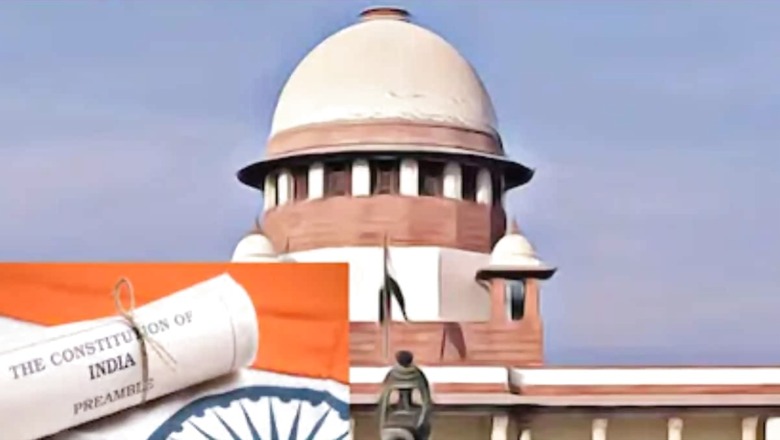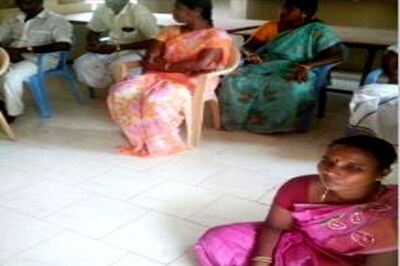
views
The Supreme Court of India has a very glorious history. The Constitution and the Supreme Court have great importance in the Indian judicial system. Many questions related to the Constitution and the Supreme Court are asked in competitive examinations like UPSC, SSC CGL, Railway Recruitment, or other government jobs. If you are also preparing for a government job, then take a look at these two topics for the General Knowledge section.
Questions related to the Supreme Court:
1: When was the Supreme Court formed?
The Supreme Court was inaugurated on January 28, 1950, two days after India became a democratic republic.
2: Where was the Supreme Court inaugurated?
The Supreme Court was inaugurated in the Narendra Mandal of the old Parliament House. For 12 years, from 1937 to 1950, the Union of India Court was functioning there.
3: Who was the first Chief Justice of India?
Justice Harilal J. Kania
4: When did the first hearing of the Supreme Court take place?
The first hearing of the Supreme Court took place on January 28, 1950. It included the then CJI Harilal Kania, Justice Fazl Ali, Justice Patanjali Sastri, Justice Mehr Chand Mahajan, Justice Bijan Kumar Mukherjea, and Justice SR Das.
5: Which was the first case in the Supreme Court?
Shankari Prasad vs. Government of India, 1951
Articles related to the Supreme Court:
1. Article 124: Establishment and constitution of the Supreme Court
2. Article 125: Salaries of judges, etc.
3. Article 126: Appointment of Acting Chief Justice
4. Article 127: Appointment of ad hoc Judges
5. Article 128: Attendance of retired judges at sittings of the Supreme Court
6. Article 129: Supreme Court to be a court of record
7. Article 130: Seat of the Supreme Court (The Supreme Court shall sit in Delhi or such other place or places, as the Chief Justice of India may, with the approval of the President, from time to time, appoint).
8. Article 131: Original jurisdiction of the Supreme Court
9. Article 131A: Exclusive jurisdiction of the Supreme Court in respect of questions as to the constitutional validity of Central laws (repealed)
10. Article 132: Appellate jurisdiction of the Supreme Court in appeals from high courts in certain cases
11. Article 133: Appellate jurisdiction of the Supreme Court in appeals from the High Courts in respect of civil cases
12. Article 134: Appellate jurisdiction of the Supreme Court in respect of criminal cases
13. Article 134A: Certificate for appeal to the Supreme Court
14. Article 135: Jurisdiction and powers of the Supreme Court under existing law
15. Article 136: Special leave to appeal by the Supreme Court
16. Article 137: Review of judgments or orders by the Supreme Court
17. Article 138: Enlargement of the jurisdiction of the Supreme Court
18. Article 139: Convention on the power of the Supreme Court to issue certain writs
19. Article 139A: Transfer of certain cases
20. Article 140: Ancillary powers of the Supreme Court
21. Article 141: Law declared by the Supreme Court is binding on all courts
22. Article 142: Use of orders of the Supreme Court as witnesses in future
23. Article 143: Power of the President to consult the Supreme Court
24. Article 144: Civil and judicial officers to act in aid of Supreme Court (Civil and judicial officers to act in aid of Supreme Court)
25. Article 144A: Special provision for settling questions relating to the constitutional validity of laws (now repealed)
26. Article 145: Rules of court, etc.
27. Article 146: Expenses of officers and employees of the Supreme Court
28. Article 147: Interpretation




















Comments
0 comment